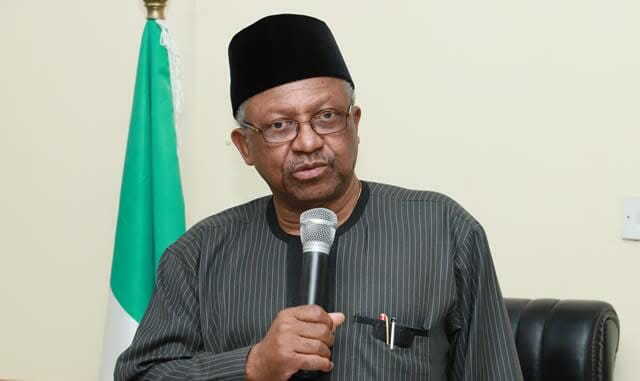The Federal Ministry of Health (FMOH), on Friday launched the National Policy on female genital mutilation (FGM), national protocol on management of complications of FGM in the country.
The Minister of Health, Dr Osagie Ehanire, at the Launching in Abuja, also presented the Revised National Policy and National Protocol on management of Survivors of FGM to the Public.
The News Agency of Nigeria(NAN) reports that FGM is defined by the World Health Organisation as “all procedures that involve partial or total removal of the external female genitalia, or other injury to the female genital organs for non-medical reasons”.
It can leave women and girls traumatised as well as in severe pain, cause difficulties in child birth, and in some rare cases it can lead to death.
Ehanire said that both guidelines are expected to provide up to date, evidence informed recommendations on the management of health complications from FGM.
The minister added that the Revised National Policy and Plan of Action for Elimination of FGM and the developed National Protocol on the Management of Survivors of FGM is a response to the constitutional protection of human rights of women and girls and its obligations under international law.
“It is interesting to note that, the Government of Nigeria has recognized FGM as a discriminatory practice requiring policy intervention since 2002, when the first national policy was developed”
“Although significant milestones have been recorded since its implementation, including the enactment of the legislation, Nigeria still faces some challenges in the elimination of this practice throughout the country”
“Hence, it became imperative that the policy be reviewed and developed to fill in the gaps and provide the basis for actions which will further drive the implementation of interventions” he noted.
He added that these National guidelines on the management of survivors of FGM are to provide up-to-date, evidence-informed recommendations on the management of health complications from FGM.
“These guidelines will be useful to Frontline health-care professionals, health-care managers, policy-makers and others in charge of planning” he added.
In his remarks, Minister of State for Health, Sen. Adeleke Mamora, represented by Director, Family Health Department, FMOH, Dr Salma Kolo, expressed optimism that the documents when implemented would eliminate the trend of FGM as well as manage complications that may arise in the country.
Mamora said that the documents would provide policy direction for all stakeholders in the reproductive maternal, and adolescent health service delivery space as well as address pertinent issues relating to gender and rights of women and girls.
“These documents have been designed to address emerging issues and to adopt evidence-based practices which can be implemented at scale to address the sexual and reproductive health challenges of adolescents and women in Nigeria”
“While we are delighted that as a country, we have made some progress over the years in the scale up of critical interventions that have significant impact in improving the sexual and reproductive health outcomes of girls and women in Nigeria. However, a lot still needs to be done”.
“According to the National Population Commission, Nigeria has a population of approximately 198 million persons (NPopC, 2018) with adolescent girls and women contributing a significant amount of this population. Their wealth and well being are therefore important a priority for government to ensure we have a healthy and productive society.”
The minster added that the Government is committed to providing comprehensive and Integrated Health services for all Nigerians.
“Please recall that the Violence Against Persons (Prohibition) Act, VAPP,2015 ensures that everyone will get a fairer shot at ‘equitable and inclusive’ health care and rights in Nigeria”
“Part of Governments’ efforts to ensuring the vision of providing equitable and inclusive healthcare for all is attainable and a number of initiatives have been launched to ensure the provision of quality health care and these include the development of Gender in Health Policy among others” he said.
He added that the implementation of these key documents would contribute towards achieving the set targets of eliminating the practice of FMG and managing the complications of those who have been mutilated in the country, in order to improve the health and quality of life of girls and women.
The Permanent Secretary, FMOH, Malam Mahmuda Mamman, stated that resource mobilization remains a key challenge in the campaign to end this practice.
Mahmuda noted that government alone cannot achieve everything on its own. Mamman commended donors’ cooperation over the years to end these vices.
“Your support has been phenomenal over the years. We can only call for the up-scaling of this support to accelerate the achievement of the target we have set for ourselves of eliminating the practice in five years’ time”
“I therefore implore you to remain on board and direct more resources to this end. I believe that together we shall go a long way and achieve more and have a bigger impact” he added.
Other stakeholders at the launch include the Women Affairs Minister Paulen Tallen, who took their turns to share their thoughts on the importance of the Policy in the campaign against FGM in Nigeria.
Tallen noted that FGM was one of the most grievous and unacceptable evil crimes against women and children.
“It is a violation of human right and it is most dehumanizing because it destroys the pride of women, it gives them complete low esteem and reduces them to an object that can be manipulated and destroyed by a society” she stressed.
Sources say that statistics indicates that Nigeria, due to its large population, has the highest absolute number of FGM worldwide, accounting for about one-quarter of the estimated 115–130 million circumcised women in the world.
